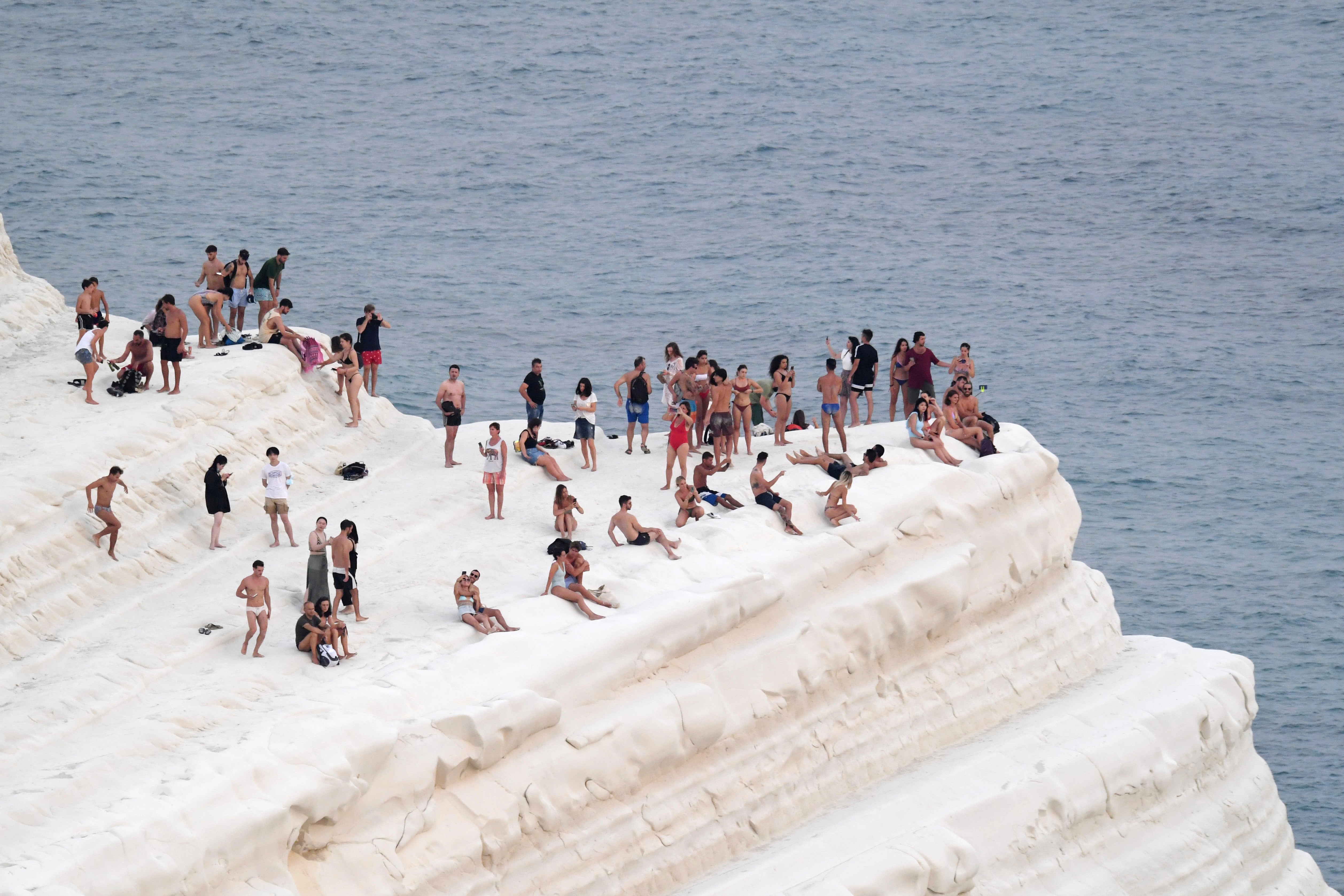Days of hot weather grip Southern Europe, North Africa
Stifling heat is gripping much of Southern Europe, and forecasters say worse is expected to come

Stifling heat kept its grip on much of Southern Europe on Thursday, driving people indoors at midday, spoiling crops, triggering drinking water restrictions, turning public libraries into cooling “climate shelters” and complicating the already difficult challenge firefighters faced battling wildfires.
In many places, forecasters said worse was expected to come.
In Italy 15 cities received warnings from the health ministry about high temperatures and humidity with peaks predicted for Friday. The cities included Rome Florence and Palermo, but also Bolzano which is usually a refreshing hot-weather escape in the Alps,
The local National Health Service offices in Rome and Bologna telephoned older residents who live alone to see if they needed groceries or medicines delivered so they wouldn't venture out in the searing heat.
The Italian air force, which oversees the national weather service, said the interior parts of the islands of Sardinia and Sicily could expect to see temperatures upwards of 40 degrees Celsius (104 F) by Friday. By noon on Thursday in Rome, the city famous for its ornamental as well as strategically placed sidewalk drinking fountains sizzled in 38 C (99 F) heat.
Beyond Italy, the spell of hot, dry weather prompted four municipalities in central Serbia to declare an emergency after Rzav river levels plummeted, endangering water supplies. Authorities imposed drinking water restrictions affecting some 250,000 people, while the Serbian army brought in water tanks for public use.
“We have a period of severe drought, we cannot take any more water from the river,” Zoran Barac, the head of a local water supply utility company, told Serbian state broadcaster RTS.
In Spain, the national weather service warned temperatures could hit 44 C (111 F) in some areas in coming days. Parts of the northeastern Catalonia region were forecast to reach 42 C (107.6 F) on Thursday.
Authorities in Barcelona the Catalan capital, designated 162 museums, libraries, schools and other public places around the city as “climate shelters.” The sites offered an escape from the heat, cool drinking water and staff trained in dealing with heat stroke.
The surge in temperatures, due to a mass of hot, dry air from Africa, was expected to ease starting on Monday on the Iberian peninsula.
While Southern Europe is known for sunny, hot summers, climate scientists say there's little doubt climate change from the burning of coal, oil and natural gas is driving extreme events such as heat waves, droughts and wildfires, which they say are likely to happen more frequently as Earth warms.
As in past years, Croatia's Adriatic Sea resorts were hosting hundreds of thousands of tourists. But those stepping out of the sea sweltered as temperatures reached 39 C (102 F) on the coast on Wednesday.
Crops suffered, too.
The Italian agriculture lobby Coldiretti said Thursday that 20% of the tomato crop in Italy's south was lost due to torrid heat and humidity. Italy exports nearly 2 billion euros ($2.4 billion) worth of tomatoes and tomato products like canned or bottled sauce throughout the world.
While much attention has focused on southern Europe's heat crisis, it was even hotter on the North African shore of the Mediterranean Sea. Temperatures hit 50 C (122 F) in Tunisia, a record high for the country. The last previous high was 48.2 C (nearly 119 F) in 1968.
In Algeria, most of the regions of the north of the country have been placed on alert for heat waves.. Fires ravaging mountain forests and villages in Algeria’s Berber region have killed at least 65 people, including 28 soldiers.
Blazes also continued to devour forest and brush areas in Greece and Portugal.
___
Barry Hatton in Lisbon, Jovana Gec in Belgrade and Sylvie Corbet in Paris, contributed reporting.
___
Follow all AP stories about climate change issues at https://apnews.com/hub/climate.
Subscribe to Independent Premium to bookmark this article
Want to bookmark your favourite articles and stories to read or reference later? Start your Independent Premium subscription today.
